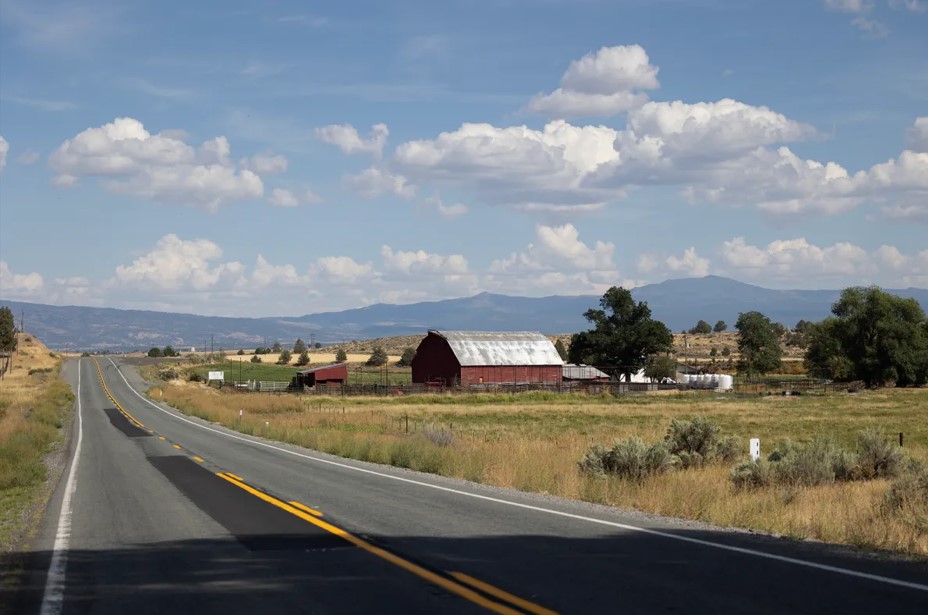Top Stories
Rural Californians Push for Secession Amid Redistricting Changes

Efforts to secede from California are gaining traction in rural Modoc County, where residents express frustration over recent redistricting proposals. The county’s approximately 8,500 residents, predominantly conservative and rural, feel increasingly alienated from a state government they perceive as dominated by urban interests, particularly from the liberal San Francisco Bay Area.
The proposed redistricting plan, put forth by Democratic Governor Gavin Newsom, aims to reshape the 1st Congressional District, which currently includes Modoc County and other rural areas. This proposal seeks to create additional Democratic seats in response to Republican gains in Texas. As a result, Modoc County could find itself sharing a congressional representative with regions in Marin County, known for its wealth and liberal policies. Local rancher Amie Martinez expressed her discontent, stating, “How could you put Marin County with Modoc County? It’s just a different perspective.”
The implications of this redistricting are significant. The proposed changes would dilute the conservative voting power in a region traditionally aligned with the Republican Party. Residents worry that their agricultural interests and views on natural resource management will be overshadowed by the liberal values of urban communities. As former Republican state senator staffer Nadine Bailey noted, the plan reflects an “assault on rural California.”
Impact of Proposition 50 on Rural Representation
The ballot measure known as Proposition 50 has ignited outrage among Modoc County residents. Scheduled for vote on November 4, 2025, the measure has been met with resistance from local leaders, including the county supervisors who have officially opposed it. The sentiment among residents is one of resignation, as they feel trapped in a partisan struggle where their voices are diminished.
Local business owner Tim Babcock from Lassen County, a neighboring area also affected by the redistricting, remarked, “It’ll be very hard to fight back.” He highlighted the overwhelming number of registered Democrats in California, which stands nearly two-to-one against Republicans, making it challenging for rural communities to assert their interests.
The isolation of Modoc County amplifies these challenges. Located five hours from Sacramento, the county is characterized by its rugged landscape and tight-knit community. Agriculture has been a cornerstone of its economy, with ranchers like Martinez selling hundreds of cattle each week. Yet, the county faces issues such as poverty—where a fifth of its residents live below the poverty line—and limited job opportunities outside agriculture.
Concerns Over Environmental Issues and Political Representation
The proposal would ultimately lead to a loss of rural representation in Congress, a concern voiced by many locals. As Heather Hadwick, a Republican Assemblymember from Modoc County, stated, it is “not good governance” to expect a representative to adequately address the needs of such a remote area.
The return of wolves to California has added another layer of complexity to the lives of ranchers in the region. Once endangered, these apex predators have been thriving, leading to conflicts with local ranching operations. Ranchers can only employ nonlethal methods to protect their livestock, which many argue is insufficient for their needs. Teri Brown, owner of a local feed store, highlighted the economic impact, noting that wildlife has killed numerous cattle, resulting in significant financial losses.
Despite their political differences, residents of Modoc County share a common distrust of the broader political landscape. Many feel that their concerns about natural resource management and rural livelihoods are often overlooked by both state and federal officials. They express a desire for representation that understands their unique challenges, particularly in light of the new congressional district that could dilute their voices further.
In the face of these challenges, the issue of secession has re-emerged, reflecting a broader sentiment of disconnection from state governance. County Supervisor Geri Byrne emphasized that the push for secession is not merely a conservative issue but rather a response to the urban-rural divide. Local residents have previously attempted to align with neighboring counties to form a new state, the “State of Jefferson,” a move that underscores their desire for greater autonomy and representation.
As the vote on Proposition 50 approaches, Modoc County stands at a crossroads. The outcome will likely shape the future of political representation for its residents and could define their relationship with the rest of California for years to come.
-

 Lifestyle5 months ago
Lifestyle5 months agoLibraries Challenge Rising E-Book Costs Amid Growing Demand
-

 Sports5 months ago
Sports5 months agoTyreek Hill Responds to Tua Tagovailoa’s Comments on Team Dynamics
-

 Sports5 months ago
Sports5 months agoLiverpool Secures Agreement to Sign Young Striker Will Wright
-

 Lifestyle5 months ago
Lifestyle5 months agoSave Your Split Tomatoes: Expert Tips for Gardeners
-

 Lifestyle5 months ago
Lifestyle5 months agoPrincess Beatrice’s Daughter Athena Joins Siblings at London Parade
-

 Science4 months ago
Science4 months agoSan Francisco Hosts Unique Contest to Identify “Performative Males”
-

 World5 months ago
World5 months agoWinter Storms Lash New South Wales with Snow, Flood Risks
-

 Science5 months ago
Science5 months agoTrump Administration Moves to Repeal Key Climate Regulation
-

 Business5 months ago
Business5 months agoSoFi Technologies Shares Slip 2% Following Insider Stock Sale
-

 Science5 months ago
Science5 months agoNew Tool Reveals Link Between Horse Coat Condition and Parasites
-

 Sports5 months ago
Sports5 months agoElon Musk Sculpture Travels From Utah to Yosemite National Park
-

 Science5 months ago
Science5 months agoNew Study Confirms Humans Transported Stonehenge Bluestones









